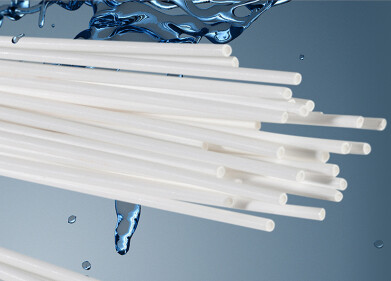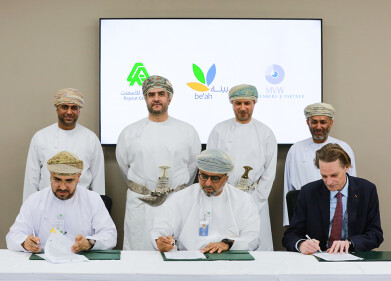Waste management
Plastic waste from rivers for recycling
Jan 14 2021
Floating plastic waste can be recovered cost-effectively and valorised if the recovery can take place before the waste reaches the sea. A research project led by VTT examines how plastic waste ending up in rivers can be taken out and recycled profitably. Jakarta, Indonesia is the testing ground.
Plastic waste floating in waterways quickly drifts far away from its original locations, making it difficult and expensive to recover. Furthermore, without a clear owner of the problem, no-one takes responsibility for the recovery. Recovery is easier as soon as possible after the plastic waste has ended up in a river and is in the interest to nearby residents, officials, and businesses.
Floating waste rafts would more easily be recovered if it could be done at a reasonable cost and if the plastic waste could be recycled into valuable materials. The two-year Kelmuvex project led by VTT aims at precisely such a recycling concept.
The piloting area chosen for the project is Jakarta, Indonesia, where PET bottles and durable propylene products, such as pipes and containers, are recycled, but other plastic waste either ends up in landfills with other mixed waste, or is washed into rivers, and further into the sea.
“In Jakarta we are looking at the amount, quality, and location of waste floating in the river and studying options to identify the waste from the air. We are working together with Finnish companies to develop and test methods to enable the recovery of floating plastic waste from the river and to utilise it as a raw material for construction materials and fuels, for example. Our goal is to develop circular economy concepts that suit local conditions and which can also be applied in other key locations with floating waste issues”, says Mona Arnold, Principal Scientist at VTT.
Turning river litter into plastic composites and diesel fuel
The Kelmuvex project is funded by Business Finland, VTT and four Finnish companies, which are the members of the project consortium: Lamor is well-known for its mechanical oil-spill response technology. RiverRecycle is developing technologies for collecting and removing floating waste, as well as recycling concepts. Wimao supplies technology for recycling plastic waste and Valmet technology for the process industry.
In addition, local actors involved in developing waste management in Jakarta will take part in the project.
The varying composition of floating waste makes it difficult to utilise. It usually comprises of many different types of plastic, textiles, as well as soil and plant material washed away by heavy rainfalls. Optical sensor solutions that can be installed in a drone or in a fixed location are utilised for the identification and monitoring of the floating waste to support the recovery operations.
Various plastic recycling methods will also be assessed, and the method or combination of methods most suitable for the target will be selected. One option is to recycle plastic waste mechanically by melting it down and moulding it into new products e.g. for the construction industry.
Plastic waste that is dirty and difficult to sort can be recycled chemically with pyrolysis technology. In pyrolysis, the long polymer chains in plastic are broken down thermally in the absence of oxygen into pyrolysis oil, which can be further processed into fuel, such as diesel, or even fractionated into monomers. The monomers could be utilised as raw materials for plastics and other chemicals.
Plastic waste from dry land
In addition to the quality and recycling method, the profitability of a recycling plant relies on having access to sufficient waste volumes. Collaboration with local waste management is essential and the project aims to ensure that the recycling plant would also get locally collected plastic waste, which is normally landfilled.
“As waste management develops, the focus could shift from waste rafts on rivers to the utilisation of land-based plastic waste. Most important is that the developed circular economy concept will support regional reduction of waste”, Arnold notes.
Events
Apr 21 2025 Shanghai, China
May 11 2025 Vienna, Austria
May 18 2025 Algiers, Algeria
23rd International Water Management Exhibition
May 20 2025 Prague, Czech Republic
Singapore International Water Week Spotlight 2025
Jun 23 2025 Singapore














